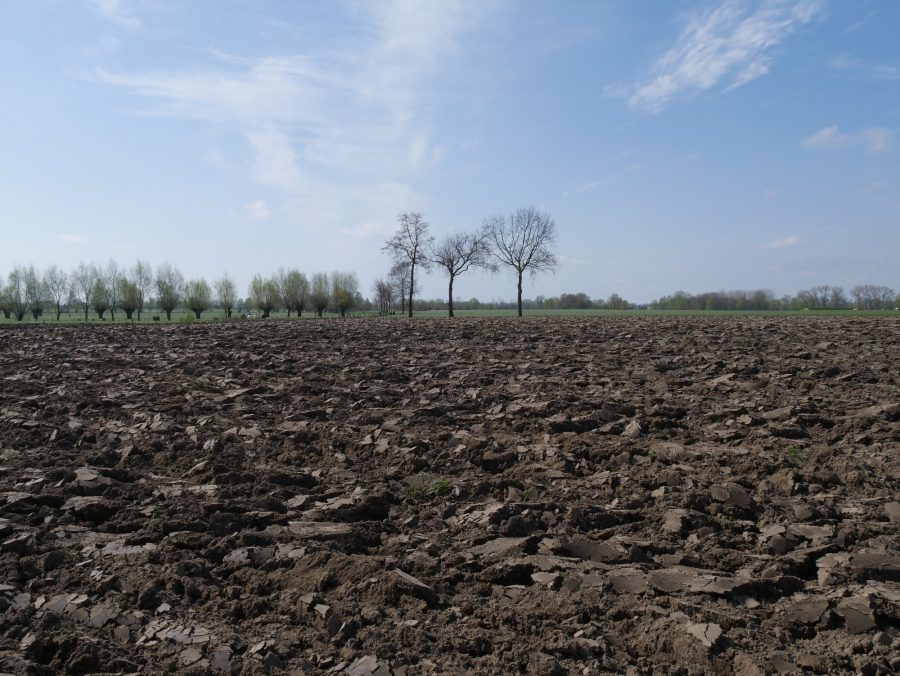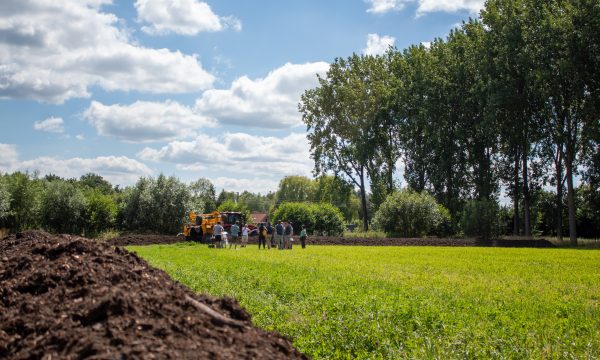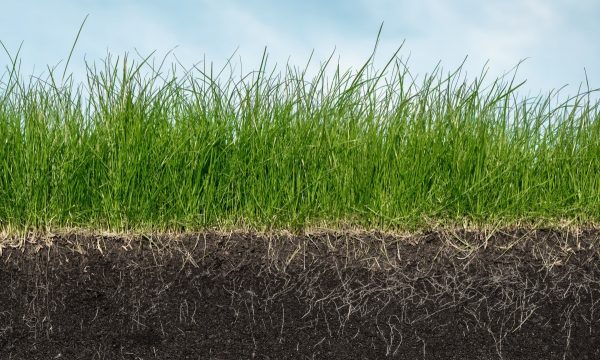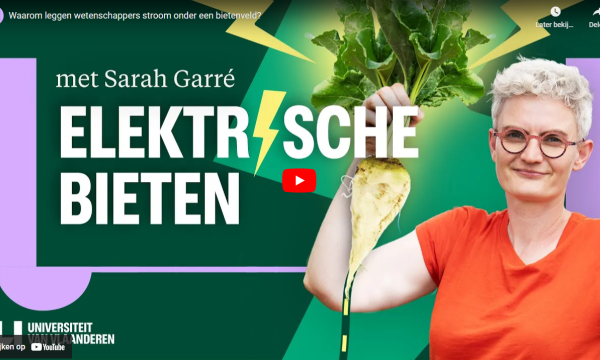Press release European agricultural soils on the road to climate smart and sustainable management. Findings after one year of EJP SOIL in Flanders.

Our soils provide us with not only food but also a wide range of ecosystem services such as carbon storage and water storage. Due in part to the changing climate and intensive soil management, several of these services have been under pressure for years. Europe wants to change that with EJP SOIL, a European 'Joint Programme' with research and policy actors from 24 European countries. In Flanders, too, via EJP SOIL, solutions are being intensively sought to make our agricultural soils more resilient to climate change and to find ways of using them for more sustainable agricultural production. Ecosystem services, land and soil degradation and biodiversity are also focus points. Flanders is represented within the program by ILVO, the Department of Environment and INBO. The Department of Agriculture and Fisheries chairs that Flemish Hub.
1 year EJP SOIL in Flanders: soil roadmap as a compass for climate smart and sustainable soil management and start-up of several soil research projects
During the first working year we - like the other EJP SOIL countries - took stock of the policy, research and knowledge system on agricultural soils and climate-smart sustainable soil management. To this end, relevant stakeholders were questioned about soil policy in Flanders and their (knowledge) needs. The reports have been finalized and integrated in a European "roadmap" that should guide the research and activities of EJP SOIL. Various research projects were also started within the program and work was done on data harmonization, data exchange and a network of long-term field experiments.
Flemish soil policy goals lag behind current challenges
In Flanders, 3 surveys were launched, one on soil policy objectives, one on soil management in Flemish agricultural practice and one on research. On most topics there is consensus among stakeholders that the policy objectives are not adapted to current challenges, such as climate change. Stakeholders also demand a clear, integrated soil vision and a multi-stakeholder soil network and platform for knowledge exchange. These needs were included in the European roadmap. In Flanders a total of 19 organizations participated, including policy actors, agricultural organizations, consultants, research institutions and NGOs. The results for Flanders were compiled in two Dutch-language ILVO booklets (see below).
Need for integrated Flemish soil policy and objectives
An overview of current policy objectives and the indicators used by the policy can be found in the first ILVO booklet. This shows that current Flemish soil policy focuses on soil organic matter, soil erosion, soil contamination and nutrient losses. There are currently few quantitative objectives that explicitly address soil challenges, and no systematic soil monitoring is done yet. Soil researcher and Flemish coordinator of the EJP SOIL program Greet Ruysschaert explains: "Although soil is addressed in quite a few policy documents, there is no overarching policy framework in Flanders. The stakeholders indicated in the questionnaires that the gap between where we are now and what should be future-oriented policy objectives is still large for most soil challenges. Soil erosion, acidification and contamination are the biggest exceptions to this." The survey also shows that both current policy and several other stakeholders are looking at crops and rotations and management of organic matter and nutrients as answers to various soil challenges. In addition, stakeholders placed more focus on adapted tillage, innovative farming systems and water management, while current policy documents focus more on buffer strips and small landscape elements. Stakeholders emphasized the need for a systems approach, mapping all elements and their influences, and the importance of combining measures.
Priorities sequenced: organic matter, water, biodiversity and nutrient leaching
The state of affairs of the research and the opinions of the stakeholders about the knowledge system for sustainable soil management in Flanders are summarized in the second ILVO booklet. Stakeholders were also asked what they considered to be the main soil challenges for the coming decades. Maintaining and increasing soil organic matter came out as the most important soil challenge, followed by improving the water storage capacity of the soil, increasing biodiversity and reducing nutrient losses. Soil organic matter is also an important topic in research. Soil research to date has also focused primarily on the impact of organic fertilizers and non-coercive tillage, leaving the potential of crops and crop rotations underexposed. Although soil moisture retention was the second priority for stakeholders, driven by the drought of recent years, this topic and possible solutions have been relatively little studied in Flanders until now.
Internal EJP projects
The overarching EYP SOIL program also funds competitive research projects. The first ones started in February 2021. Flanders is involved in no fewer than 7 subprojects from the first round:
- CarboSeq
For now the largest EJP SOIL project with participation from almost every country in the consortium. This project collects data on the impact of carbon storage measures and calculates the achievable carbon storage potential in all participating European countries.
- SOMMIT
ILVO is also a partner within the SOMMIT project. This project evaluates the trade-off between the carbon storage potential of measures and possible negative trade-off effects such as N2O and CH4 losses and nutrient leaching.
- STEROPES
The STEROPES project aims to map carbon from the topsoil of croplands based on remote sensing. ILVO is a participating partner.
- CLIMASOMA
ILVO coordinates the CLIMASOMA project, which synthesizes available knowledge on soil and crop management as a function of climate adaptation.
- SCALE
The Flemish Department of the Environment is a partner in the SCALE project studying connectivity in the landscape and its impact on sediment delivery to waterways.
- SIREN en i-SoMPE
Flanders also contributes to the stock-taking projects: SIREN on ecosystem services and soil indicators and i-SoMPE on innovative soil management practices.
More information on all of the ongoing internal EJP SOIL projects can be found on the EJP SOIL website.
External calls
EJP SOIL also includes two calls for external projects in which research institutions from outside the consortium can participate. Currently, the first call for external projects is open. The deadline for submission is September 7. For Flanders, the FWO is funding two projects for an amount of 350,000 euros each.
Database of long-term field experiments, international harmonization, exchange and access of soil data
The Flemish Department of the Environment is responsible for the Flemish input in the field of soil data. In order to enable the smooth exchange of data, they must comply with the European INSPIRE Directive. The region of Flanders and the country of France are furthest along in this process and shared their experiences and good practices with the rest of the partners. In the coming years the various countries will work together with Europe to resolve gaps and shortcomings in the INSPIRE guidelines for soil. In addition, work has started on the preparation of various international code lists so that soil data can be more easily harmonized and exchanged. These are important steps in enabling the exchange of soil data within Europe as a basis for research, modeling, policy and reporting.
Get the latest project news
Sign up for the EJP Soil newsletter, and take a look at the EJP SOIL website.


